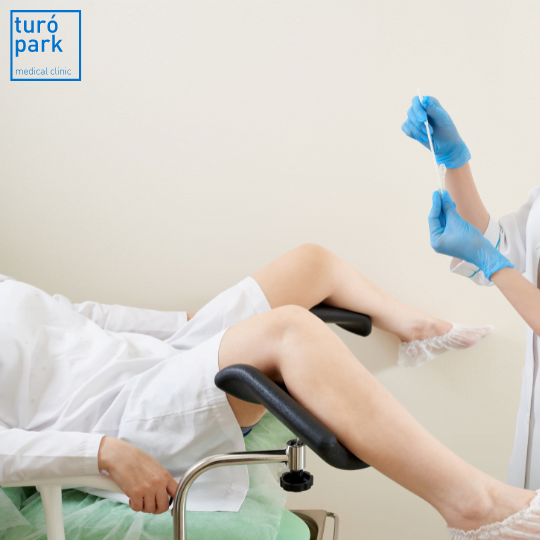What is Trichomoniasis testing?
Trichomoniasis screening is done by vaginal and urethral smear in women by the gynaecologist and by a urine sample in men by the doctor or urologist. This can be done as early as the fifth day after infection.
If trichomoniasis is suspected, screening for other STIs, especially gonorrhoea and HIV, is recommended.
Think you have trichomoniasis?
Trichomoniasis is the most common sexually transmitted infection in the world with 143 million new cases each year according to WHO figures. Although it is usually benign and asymptomatic, it can lead to complications and significantly increases the risk of getting HIV/AIDS.
If you are suffering from symptoms suggestive of trichomonas vaginalis infection, don't wait to get tested and start appropriate treatment as soon as possible.

→ Book the STD test best suited to your needs
We have different types of tests available depending on the analysis you want to perform. Choose the one that best suits your needs.
What is trichomoniasis?
Trichomoniasis is a sexually transmitted infection (STI) caused by a parasite belonging to the protozoan family, trichomonas vaginalis. It mainly affects young women, and can cause vaginitis in women and urethritis in men.
Trichomoniasis is the most common STI in the world.
Trichomoniasis: symptoms
Most often asymptomatic, especially in men, trichomoniasis can nevertheless be accompanied by symptoms, mainly urogenital, such as
- Vaginal secretions, usually abundant, malodorous or not, with a frothy appearance, taking on a greenish colour, sometimes whitish
- Vaginal irritation or itching
- Pain during urination or sexual intercourse

What should I do if I test positive?
If your STD test is positive, you can consult one of our English-speaking doctors at Turó Park Clinics. He or she will explain the results and guide you through the various treatment options available to you.
If you are HIV-positive, a combination of lifelong treatments (triple therapy) can be considered to stop the progression of the disease. However, it is not yet possible to completely eliminate the virus.
To treat syphilis, antibiotics are usually prescribed and the prognosis for recovery is very good. The patient's sexual partners must also be treated.
Antibiotics are the most common treatment for trichomonas vaginitis, gonorrhoea, lymphogranulomatosis venereum and mycoplasma infections.
Genital herpes cannot be completely eliminated. However, treatment can relieve the pain and limit the duration and intensity of the herpes if it recurs.
Finally, in the majority of cases, hepatitis B heals spontaneously, but in some cases it can become chronic.

Quality care network
How is Trichomonas vaginalis infection transmitted?
Genital Trichomonas infections are almost always sexually transmitted. Women can be infected through sex with men or women. But men can only be infected through sex with women, not men.
Less frequently, transmission through damp towels, bath water or previously contaminated toilet seats is also possible. The parasite can live for up to 24 hours in outdoor environments if conditions are right.
What are the possible complications of Trichomoniasis?
The infection can cause pelvic inflammatory disease and, in pregnant women, premature labour and delivery.
In men, the only rare complications are epididymitis (inflammation of the duct connecting the testicle to the prostate) and prostatitis (inflammation of the prostate).
Trichomonas: treatment
Treatment is based on the oral administration of an antiparasitic antibiotic of the nitroimidazole family. Treatment may be given in a single dose or over several days depending on the symptoms.
All infected persons (patient and all known partners) should be treated and sexual intercourse should be avoided until treatment is completed and recovery is complete.
How can trichomonas vaginalis infection be prevented?
There is no vaccine to prevent Trichomonas vaginalis infection. To avoid trichomoniasis, a condom (internal or external) should be used during sexual intercourse.
Trichomoniasis: FAQ